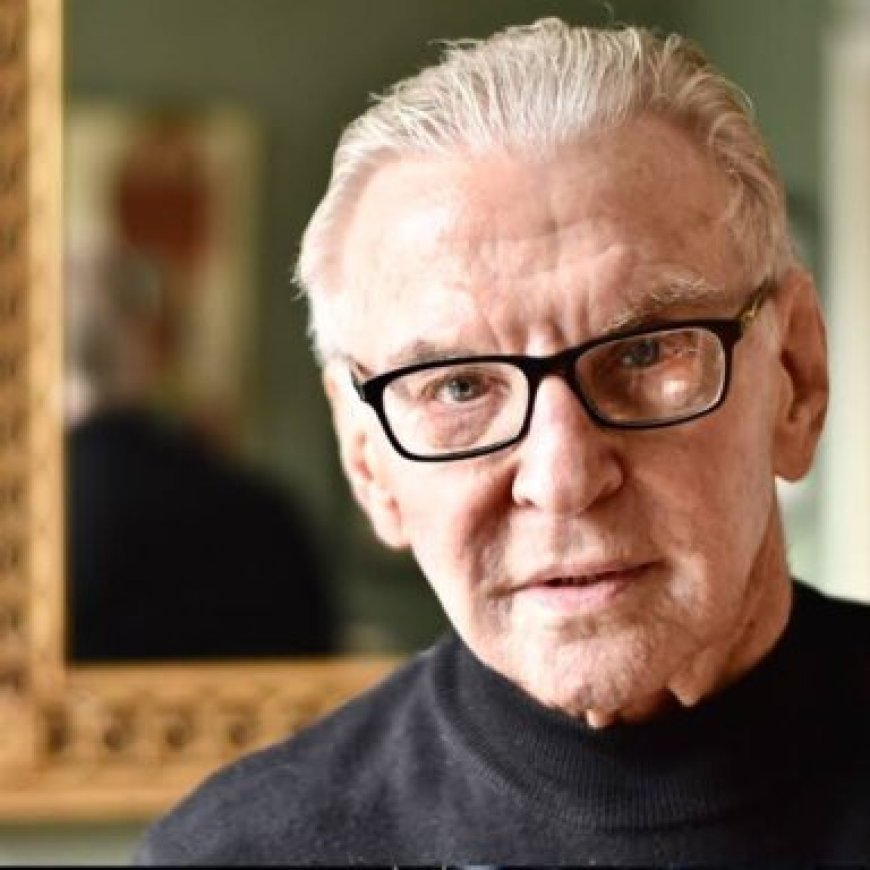Subjects matter: an interview with Martin Duberman
Gay writer and historian Martin Duberman is the very definition of a living legend. At the age of 93, with nearly 40 books to his credit, Duberman shows no signs of slowing down. His latest book is “The Line of Dissent: Gay Outsiders and the Shaping of History” (G&LR Books, 2023), out in early 2024, … Read More

Gay writer and historian Martin Duberman is the very definition of a living legend. At the age of 93, with nearly 40 books to his credit, Duberman shows no signs of slowing down. His latest book is “The Line of Dissent: Gay Outsiders and the Shaping of History” (G&LR Books, 2023), out in early 2024, a compilation of essays (many of which were previously published in “Gay & Lesbian Review Worldwide”), along with a pair of codas. Some of the names featured, including W.H. Auden, Alfred Kinsey, and Sylvia Rivera, will be familiar to many readers, while others are sure to be revelations. Duberman was gracious enough to make time for an interview in advance of the book’s January 2024 publication date.
Gregg Shapiro: In the introduction to “The Line of Dissent,” you write that the book is “opinionated” and “contains no demolition jobs,” and you note “appraisals are mostly appreciative.” Is this in response to something you’d seen other historians doing?
Martin Duberman: Historians, being human, have a wide range of responses to the individuals they choose to write about. In my earlier books (“Charles Francis Adams, 1807-1886” and “James Russell Lowell”), I felt personally more distant from the subjects. But my recent work follows the trajectory of my politics — that is, moving steadily leftward.
GS: Most of the essays in “The Line of Dissent” previously appeared in “Gay & Lesbian Review Worldwide.” Was the idea to compile the essays into a book your idea or G&LR publisher Richard Schneider’s?
MD: The idea for the book was mine, though Richard was immediately enthusiastic.
GS: Were there any essays of yours from “Gay & Lesbian Review Worldwide” that didn’t make the cut for the book?
MD: There are 12 essays in the book, and I’ve probably written some 20 (my memory’s a little shaky here). Which if accurate would mean some seven to eight didn’t make the cut. David McReynolds would be one example.
GS: In many ways, “Gay & Lesbian Review” fills a void left by the loss of “Christopher Street,” as well as the death of several regional LGBTQ+ newspapers. What does it mean to you that a publication such as “Gay & Lesbian Review” exists?
MD: I think the role “Gay & Lesbian Review” plays in the community is significant. No other publication reaches an educated, but not academic, audience.
GS: 2023 turned out to be a year in which historically significant LGBTQ+ people — including Bayard Rustin, Diana Nyad, and Leonard Bernstein — are the subjects of high-profile biopics. Are there one or two people about whom you wrote in “The Line of Dissent” that you think would make a good subject for a movie?
MD: Lord, yes! Offhand, I couldn’t name even one who wouldn’t qualify for a film, and who wouldn’t find an audience. Every one of their lives was dramatic and rich. As were dozens of other LGBTQ+ people not in the book. Check out the lists in “Outwords” (theoutwordsarchive.org) as one source for candidates. It’s an invaluable resource for candidates to write about and to honor.
GS: Essay subjects Essex Hemphill, Andrew Dworkin, and Lincoln Kirstein are people about whom you also wrote the full-length books “Hold Tight Gently,” “The Feminist as Revolutionary,” and “The Worlds of Lincoln Kirstein,” respectively. What makes a person a fascinating subject worthy of a book-length project to you?
MD: Using “drama” as a guideline, I’d say that Sylvia Rivera’s life was especially full of vivid and sometimes hair-raising episodes. Ditto Essex Hemphill and Andrea Dworkin. A film on Andrea was recently completed, but I haven’t seen any release date for it.
GS: When you write a revelatory essay such as “Edward Sagarin: ‘Father’ of the Homophile Movement,” are you as excited about sharing your knowledge and/or the results of your research as you hope the reader will be when they receive the information?
MD: My level of excitement varies with the subject. The three you cite are among the most important. In a semi-conscious way, I tend to respond to “second rank” figures — that is, people who in their own day made a substantial political contribution but the general public has forgotten.
GS: “The Line of Dissent” opens with the dedication: “To the current generation of queer radicals. Please hurry!” I live in South Florida, which is suffering greatly under anti-LGBTQ+ Governor DeSantis and his cronies. However, we are seeing young LGBTQ+ people in the state taking action and becoming activists in response. That’s not just happening in Florida, but in other places, as well. Does that give you a sense of hope for the future?
MD: Yes! I see lots of evidence of activity emerging from the latest generation. Alas, I also see Young Republicans who are equally outspoken. It could come down to a dog fight, with damn near everything at stake. For now, I’m still sticking with my optimistic prediction.

 Mark
Mark 





